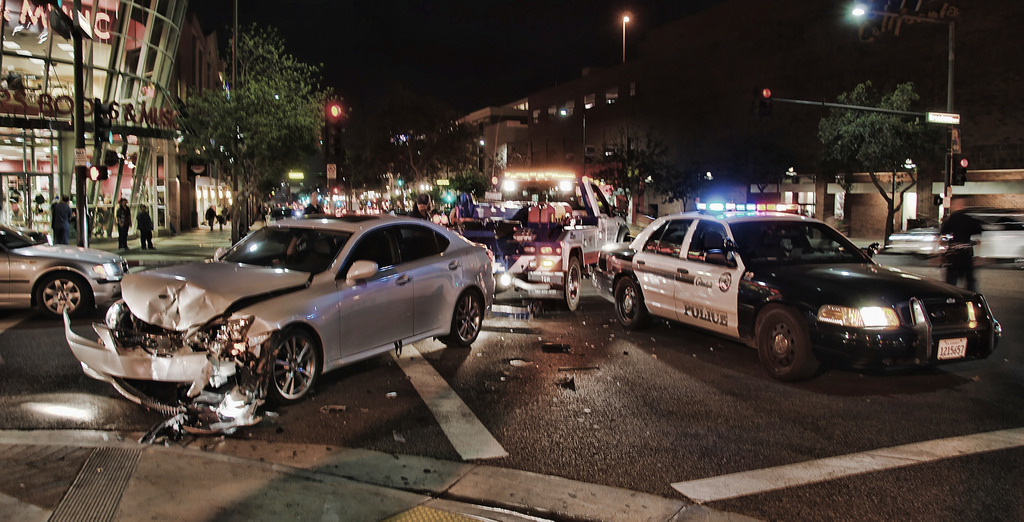Car accidents are the No.1 killer of American teens, taking more lives than homicide, suicide and diseases combined. Summertime is tragically a major accelerant in this statistic- teens are three times more likely to be involved in a fatal accident between Memorial and Labor day, now infamously dubbed the “100 Deadliest Days” of teen driving.
Of course, teen accidents aren’t only a danger to themselves and their passengers. Sixty percent of fatal accidents involving a teen driver kill someone other than the teen.
So while summer and car keys are a gift of freedom to our young drivers, it’s imperative families continuously work together to ensure their children evolve into savvy, smart and safe drivers.
Parents or guardians play an instrumental role in properly educating their new drivers on safe skills and habits as well as explaining the serious risks that come with the gas pedal. Unfortunately, parents teaching children to drive for the first time (or maybe even by the third time) can be just as jittery as their teen. But given the huge risks, it’s okay, encouraged rather, to look for help beyond the average driver’s ed courses.
Resources for Parents and Teen Drivers
Driver’s Edge
This non-profit offers a free half day program for drivers ages 21 and younger- and your teens will actually want to go. With a professional race car driver in the passenger seat, teen drivers take to an actual racetrack where they’ll learn about evasive lane changes, panic braking, skid control and more. Driver’s Edge also asks local law enforcement to make a pit stop, performing mock sobriety tests on participants and discussing impaired driving and driver’s rights when pulled over. Finally, this free, award-winning course covers quality car care including tire safety, seat belts and seating positions. Based in Nevada, the program is available year long for residents but travels on an annual national tour. You can look for tour dates, here.
National Security Council (NSC)
Safe driving has long been a main initiative for the NSC.They continuously meet with researchers, safe driving advocates, law enforcement officers and victims’ families with the end goal of providing informed leadership and effective safe driving programs.
Alive at 25 is NSC’s interactive educational course for drivers ages 15 to 24. During the 4 ½ hours, young drivers develop on-the-spot defensive driving techniques while simultaneously gaining confidence in their swift decision making abilities. Trained instructors utilize workbooks, group discussions, role-playing and interactive segments including looking at cars in real, serious car accidents involving young drivers. While not free or a driver’s ed replacement, Alive at 25 continuously thrives as a valuable teaching aid for new drivers; participants should ask their insurance companies about discounts upon completion.
Unfortunately, Alive at 25 is only currently offered in five states: California, Colorado, Idaho, Maine and Wyoming. However, the NSC also focuses immensely on helping parents effectively teach their new drivers.
Drive it Home is an NSC program designed by parents who’ve learned the tips and tricks of teaching young children to drive. From practicing patience to expecting mistakes and providing constructive and optimistic feedback, Drive it Home should help both the parent and teen feel more comfortable in the car. The entire program consists of 52 lesson plans- available all at one or through weekly emails- by a digital driving coach. Lesson plans begin with low-risk situations and progress to riskier scenarios and complex skills including nighttime driving, aggressive drivers and potential road hazards. Parents using the courses are also encouraged to share tips and/or ideas they learn throughout the process to continue building this free program.
teenSmart
Completed through online driving tutorials at home, teenSmart emphasizes six behavioral and social factors responsible for more than 90 percent of teen driver accidents: hazard detection, visual search, speed, space management, lifestyle issues and risk perception. After finishing each tutorial, users receive immediate feedback and may try again until they master the lesson. TeenSmart is not free; however, it’s endorsed by more insurance agencies than any other driver safety program allowing many graduates to receive an insurance discount.
State Farm
Similar to NSC’s programs, State Farm also supports two programs, Road Trips and Road Aware. Combining forces with driving instructors, safety engineers, behavioral scientists and pediatricians, Road Trips is an online program offering practical advice on effective teaching methods and insight into your teen’s mindset throughout the driving stages. Road Aware is a free computer simulation program designed for teens to practice on before they hit the streets. Aiming to have teens make mistakes without risk, Road Aware provides a realistic experience in recognizing and anticipating common road hazards that prior to driving may have gone unnoticed.
Have you had success with other similar programs not mentioned on our list or would like to share your experiences with the ones listed? Comment below to share your thoughts and tips on how to keep our new and experienced drivers safe.





No Comment